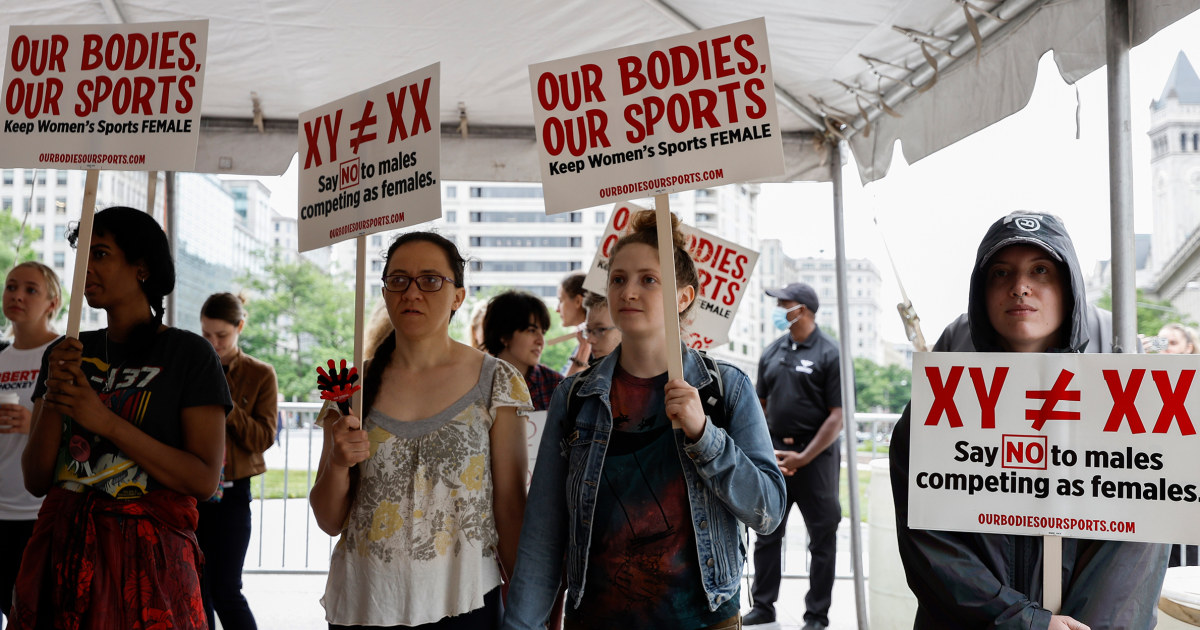By US NEWS

In recent years, the topic of gender in sports has sparked vigorous debate and passionate discussions worldwide. The crux of this issue is whether or not men should be allowed to compete in women’s sports, particularly at the prestigious Olympic Games. The stance taken here is clear and unambiguous: men should not be permitted to compete in women’s sports. It’s as simple as that.
Preserving Fairness in Competition
One of the primary reasons for this stance is the need to preserve fairness in competition. The biological differences between men and women are well-documented and significant. On average, men possess greater muscle mass, bone density, and physical strength than women. These differences translate into performance advantages in many sports, particularly those that require speed, strength, and endurance.
Allowing men to compete in women’s sports would undermine the level playing field that sports competitions strive to maintain. Women have fought long and hard to have their own categories in sports, where they can compete fairly and showcase their abilities without being overshadowed by men. To blur these lines now would be to negate these hard-won gains.
The Spirit of the Olympics

The Olympic Games are the pinnacle of athletic achievement, celebrating the best of the best from around the world. The spirit of the Olympics is rooted in fair play, equality, and respect. Allowing men to compete in women’s sports would violate these core principles. It would introduce a fundamental imbalance, making it nearly impossible for women to win or even compete on an equal footing.
Respecting Gender Categories
Sports categories exist for a reason. They are designed to ensure that athletes compete against others with similar physical attributes and abilities. This is why we have weight classes in boxing and wrestling, age groups in junior sports, and gender divisions in nearly all sports.
To disregard these categories would be to ignore the very structure that makes sports competition fair and meaningful. Men and women are different, and these differences should be respected and maintained in the context of sports competitions.
The Transgender Athlete Debate
The debate becomes even more complex when considering transgender athletes. While it’s essential to support and respect the identities and rights of transgender individuals, it is equally important to ensure that sports competitions remain fair. The inclusion of transgender women (biological men) in women’s sports raises valid concerns about competitive balance and fairness.
Many sports organizations and governing bodies have established guidelines and policies to address this issue, often requiring transgender women to meet specific criteria before competing in women’s events. These criteria typically include hormone therapy and a period of time living as their identified gender. However, even with these measures, questions remain about whether such policies can fully mitigate the inherent physical advantages that biological men may retain.
A Call for Clear and Fair Policies
To navigate this complex issue, it is crucial for sports organizations, including the International Olympic Committee (IOC), to develop clear and fair policies that protect the integrity of women’s sports while respecting the rights of all athletes. This requires ongoing dialogue, research, and a commitment to upholding the principles of fair competition.
Conclusion
In conclusion, the stance that men should not be allowed to compete in women’s sports is rooted in the principles of fairness, equality, and respect for the integrity of athletic competition. The biological differences between men and women necessitate the preservation of separate categories to ensure a level playing field. The Olympic Games, as the ultimate celebration of human athletic achievement, must uphold these principles to maintain the spirit and integrity of the competition.



